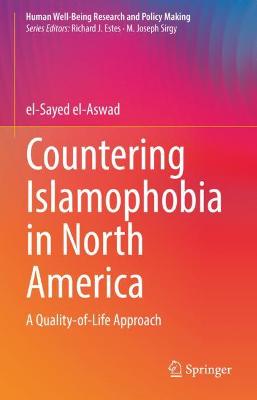Human Well-Being Research and Policy Making
2 total works
Combatting Jihadist Terrorism through Nation-Building
by M. Joseph Sirgy, Richard J Estes, and El-Sayed El-Aswad
Published 6 May 2019
This book focuses on the drivers of Jihadist terrorism and explains how a better understanding of these drivers can lead to more effective counterterrorism policies all over the world. It builds on results of the extensive body of quality of life studies to document the historical, geo-political, economic, religious, cultural and media drivers of Jihadist terrorism. Guided by a major theme this book shows that the significant gains we have made in combatting Jihadist terrorism are not enough, but that we need to embrace a much broader and comprehensive view of the antecedents and the sustaining enablers of this threat to help guide any sustainable efforts. It proposes interventions designed to effectively treat the causes of this insidious disease. This book is of great interest to new media, policy makers concerned about national security as well as people and academic scholars whose research interest involves conflict and conflict resolution, religious studies, terrorism and counterterrorism, Islamic history, and Islamic geo-politics.
This book puts together grounded research on the discourses that counter Islamophobic tropes in North America. Dealing with an important and urgent issue of human rights, it explores how public policies, new conceptualizations, and social movements can transform Islamophobia into a positive and healthy discourse. Surprisingly, and apart from selected media studies, empirical investigations about countering xenophobia and hate are rare. The book proposes effective means and mechanisms to help generate debate, dialogue, and discussion concerning policy issues to mitigate Islamophobia. Written in uncomplicated language, this topical book will attract specialist and non-specialist readers interested in the topic of Islamophobia, understanding the roots of Islamophobic hate rhetoric, and how to counter it.

